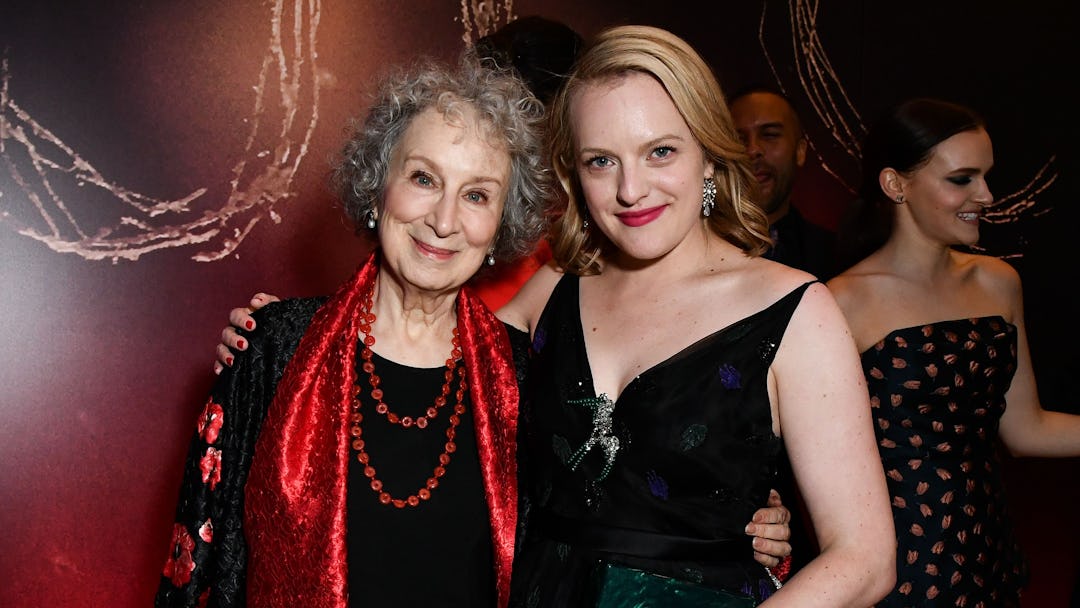Gainfully employed denizens of the modern world: happy Labor Day. While you’re celebrating the American labor movement by taking a day off of whatever job you complain about most of the time, why not indulge in a little literature — particularly literature that reminds you just how good you have it when you are in the office? After the jump, you’ll find ten of the absolute worst jobs ever committed to fiction. Check them out, and go back to work tomorrow with a happy heart.
Upton Sinclair — The Jungle: Slaughterhouse worker
But of course — Sinclair wrote the book in large part to expose what he called “the inferno of exploitation” facing American factory workers at the start of the 20th century. On Jurgis’s first day at the slaughterhouse, his job was to “follow down the line the man who drew out the smoking entrails from the carcass of the steer; this mass was to be swept into a trap, which was then closed, so that no one might slip into it… It was a sweltering day in July, and the place ran with steaming hot blood — one waded in it on the floor.” And to think, the man is totally psyched to even have this job — at least at first.
Natsuo Kirino — Out: Graveyard shift at the bento factory
The four women at the heart of this book work in a boxed-lunch factory, doing “backbreaking” work manning a never-ending conveyor belt from midnight to 5:30 am without a break. Then there’s the mysterious attacker who loiters around the lot where the workers have to park. Add that to their difficult home lives, and, well, it’s kind of no wonder they turn to murder.
Margaret Attwood — The Handmaid’s Tale: Handmaiden
Think your job sucks? Imagine being conscripted inescapably into service as a concubine — or, as Offred puts it, a “two legged womb” — for the ruling class of men, stripped of your name, your freedom, and even your past.
George Orwell — Down and Out in Paris and London: Plongeur
Orwell’s first book, half novel, half memoir, unforgettably details the plight of the Parisian plongeur (dishwasher) at Hôtel X.
“I think one should start by saying that a plongeur is one of the slaves of the modern world. Not that there is any need to whine over him, for he is better off than many manual workers, but still, he is no freer than if he were bought and sold. His work is servile and without art; he is paid just enough to keep him alive; his only holiday is the sack. He is cut off from marriage, or, if he marries, his wife must work too. Except by a lucky chance, he has no escape from this life, save into prison. At this moment there are men with university degrees scrubbing dishes in Paris for ten or fifteen hours a day… To sum up. A plongeur is a slave, and a wasted slave, doing stupid and largely unnecessary work. He is kept at work, ultimately, because of a vague feeling that he would be dangerous if he had leisure.”
Miranda July — “Something That Needs Nothing”: Live Fantasy Showgirl
The narrator in this short story, in love and spurned, ends up working in the back of Mr. Peepers Adult Video Store and More — as the “and More,” in the back, performing for masturbating men from behind glass, talking to them through a static-y plastic phone. At first it makes her feel powerful. And then, well.
Franz Kafka — “A Hunger Artist”: Professional Hunger Artist
A large number of Kafka’s protagonists have terrible jobs, though most of them are all drudgery and endless stacks of papers. But what could be worse than a job where you starve yourself for a living? Oh, right, having that job and having even your previously adoring public turn on you.
Mary Gaitskill — “Secretary”: Secretary
There’s nothing so terrible about secretarial work — unless your sleazy boss ritually subjugates and sexually abuses you, leaving you, at the end, with “despair and a longing for [family], and a sureness that we would never be close as long as I lived.”
John Steinbeck — The Grapes of Wrath: Tenant Farmer/Strikebreaker
So technically, at the beginning of this novel, the Joad family aren’t even tenant farmers anymore, but that doesn’t really disprove the point — it just makes things slightly worse. And things only continue to get worse. “I’ve done my damndest to rip a reader’s nerves to rags,” Steinbeck said. Well, that’s a job he did well.
J.K. Rowling — Harry Potter series: Defense Against the Dark Arts Teacher
I mean, Hogwarts seems like a pretty cushy gig, except that everyone in this position tends to die or be possessed or get socially ostracized or um, turn out to have been dead all along after one year. Better look for a job in a local high school, applicants.
Stanislaw Lem — Solaris: Scientist on Solaris Station
Scientist is a pretty cool job. But just wait until you’re trapped on a space station being tormented by an alien sea who, every day, sends a clone of someone you’ve loved that won’t leave you alone until you kill it. And then it just comes back the next day.
